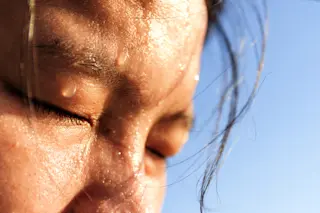A coughing, sniffling allergy attack can be bad enough on its own. But one thing may exacerbate allergies even more: stressing out. A team led by Jan Kiecolt-Glaser of Ohio State University found that out when they put hay fever and seasonal allergy sufferers to the test, and found that people under high stress have much stronger and longer allergic reactions than people who stay relaxed. First, Kiecolt-Glaser and colleagues had 28 test subjects participate in fairly-low stress activities like reading aloud from a magazine, and then checked them for wheals—small swellings on the skin that are usually signs of an allergic reactions. When researchers put the same people through more stressful activities, like solving math problems in their heads or giving a speech in front of people they were told to be behavioral experts, many of the subjects' allergy symptoms spiked. The subjects rated their own emotional response to ...
Allergy Sufferers of the World: Don't Stress, You'll Only Make It Worse
Discover how stress and allergies are linked, amplifying symptoms for seasonal allergy sufferers in everyday situations.
More on Discover
Stay Curious
SubscribeTo The Magazine
Save up to 40% off the cover price when you subscribe to Discover magazine.
Subscribe












